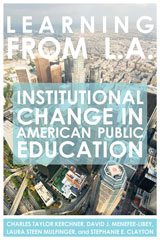Charter Schools and Collective Bargaining: Compatible Marriage or Illegitimate Relationship?
Posted on | September 18, 2007 | Comments Off on Charter Schools and Collective Bargaining: Compatible Marriage or Illegitimate Relationship?
From the article: If neither unrestricted managerial authority nor an industrial work environment will lead to high performance work places in the long run, what will? Strictly interpreted, industrial style organization would hold teachers responsible for the faithful reproduction of curricula, lesson plans, and classroom routines developed elsewhere. Following directions would be their obligation and their main responsibility. Invention, creativity, and spontaneity would not be required or expected.
If charter schools are to break this model, it is necessary to ask: “What legal regime can best encourage collaborative, high-trust workplaces, and simultaneously empower and safeguard workers against ‘domination,’ understood as illegitimate instrumental coercion and endogenous shaping of workers’ preferences and interests?” For several reasons, it would be inappropriate to mandate legislatively a particular model of employee empowerment. The charter itself provides an ideal method for ensuring such experimentation. Charter school legislation should require that the school specify a vehicle for teacher involvement in decision making as a condition of the charter. The specific vehicle for teacher voice, however, would be up to the individual school and subject to the approval of the public body granting the charter. For a full pdf text.




